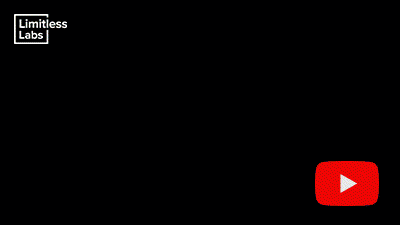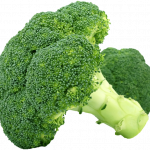As the pursuit of a healthy lifestyle becomes increasingly popular, so too does the proliferation of health fads and misinformation. From detox diets to superfoods, it seems like every week there’s a new health trend claiming to be the key to optimal wellness. However, many of these trends are based on false claims or incomplete information that can actually do more harm than good.
In this article, we’ll explore some of the most common health fads and misconceptions in order to separate fact from fiction. By examining the scientific evidence behind various health claims, we hope to empower readers with accurate information that will help them make informed decisions about their own well-being.
So if you’re ready to learn how to navigate the often-confusing world of health trends and avoid falling victim to false promises, read on.
Detox Diets: Separating Fact From Fiction
 Did you know that nearly 80% of Americans have tried some form of detox diet or cleanse?
Did you know that nearly 80% of Americans have tried some form of detox diet or cleanse?
This statistic may come as a surprise to some, but it highlights the pervasive influence of health fads in our society. Detox diets are often marketed as a quick and easy way to rid your body of toxins, boost energy levels, and even aid weight loss.
However, separating fact from fiction when it comes to these trendy diets can be challenging. While there is some evidence to suggest that certain foods and practices can support liver function and promote detoxification, many of the claims made by proponents of detox diets are unfounded.
In fact, some detox regimens can actually do more harm than good. For example, extreme calorie restriction or juice-only diets can lead to nutrient deficiencies and disrupt normal bodily functions. Additionally, prolonged fasting or cleanses involving laxatives or enemas can cause dehydration and electrolyte imbalances.
Despite the risks associated with detox diets, myths about their benefits continue to circulate on social media platforms and in popular culture. It’s important for consumers to critically evaluate information they receive about such health trends before making drastic changes to their dietary habits.
As medical researchers and educators, we strive to provide accurate information based on scientific evidence so individuals can make informed decisions about their health.
Superfoods: Sorting Out The Hype
Superfoods are a buzzword in the health and wellness industry. These foods are marketed as being nutrient-dense, capable of improving overall health and preventing chronic diseases such as cancer and heart disease. However, it is essential to understand that there is no single food or nutrient that can provide all the necessary nutrients for optimal health.
The nutritional value of superfoods varies from one food to another. For instance, some contain high levels of antioxidants, while others may be rich in vitamins and minerals. Nevertheless, marketing tactics used to promote these foods often exaggerate their benefits without scientific evidence to support them. Therefore, it’s important not to fall prey to misleading claims about any particular superfood.
Before incorporating superfoods into your diet, consider consulting with a registered dietitian or healthcare provider who can help you create an individualized nutrition plan based on your unique needs. In addition, remember that eating a balanced diet consisting of whole grains, fruits, vegetables, lean protein sources, and healthy fats is key to maintaining good health.
Five things to keep in mind when considering superfoods:
- Don’t rely solely on superfoods for optimal health
- Superfoods can vary greatly in terms of nutritional content
- Be wary of exaggerated marketing claims promoting certain superfoods
- Consult with a healthcare professional before making significant changes to your diet
- Incorporate a variety of whole foods in your diet to ensure a well-rounded intake of nutrients.
The Dangers Of Over-Exercising And Restrictive Diets
As we continue to navigate the world of health and wellness, it is important to address the dark side of fads. While superfoods have garnered attention for their supposed benefits, there are other issues at play that can be just as harmful.
One such issue is orthorexia – an extreme preoccupation with healthy eating that can lead to malnourishment and social isolation. Orthorexia may seem like a noble pursuit initially, but it can quickly spiral out of control. Those who suffer from this disorder become fixated on what they eat, how much they exercise, and how ‘pure’ their lifestyle is.
This obsession can lead them down a dangerous path where they restrict entire food groups or obsess over every calorie consumed. The risks of orthorexia should not be underestimated; it can result in severe physical and mental health problems. Social media has also played a significant role in exacerbating these issues.
With influencers promoting unrealistic body standards and quick-fix diets, individuals are more likely to fall victim to disordered eating habits. It’s imperative that we educate ourselves about the dangers of restrictive diets and encourage a holistic approach to wellness.
Remember – true health comes from balance, not deprivation or obsession with perfectionism.
Going Beyond The Headlines: Examining The Science Behind Health Claims
Evaluating health claims requires more than just reading headlines or listening to anecdotal evidence. The importance of peer-reviewed research cannot be overstated in providing reliable information on the efficacy and safety of different treatments.
When evaluating a new health fad, it is crucial to examine the quality of studies conducted and published by reputable scientific journals. Placebo effects can play a significant role in alternative medicine practices, making it challenging to separate real results from those that are simply due to belief or expectation.
It is essential to understand how placebos work and their potential impact on health outcomes when evaluating claims made about alternative therapies. Furthermore, understanding the mechanisms behind placebo effects can help researchers design better clinical trials and improve patient care.
While many health fads claim miraculous benefits without adequate scientific backing, there are still valid reasons to explore new approaches to healthcare. However, as consumers and practitioners alike, it is our responsibility to critically evaluate these claims before adopting them into our daily lives.
By examining the science behind emerging trends and understanding the role of placebos in healing, we can make informed decisions that prioritize our health and well-being.
Navigating The World Of Health Trends: Tips For Making Informed Decisions
As we navigate the world of health trends, it’s important to approach them with a critical eye and make informed decisions.
One key aspect of this is practicing mindful eating. This means paying attention to our hunger cues and being aware of what we’re consuming, rather than mindlessly following the latest diet fad.
Another factor to consider is holistic wellness. While certain health trends may focus on one specific area such as weight loss or reducing inflammation, it’s essential to remember that our overall well-being encompasses multiple aspects including physical, mental, and emotional health.
It’s crucial to prioritize self-care practices that address all areas of wellness in order to achieve true balance.
When evaluating new health trends, be sure to do your research from reputable sources and consult with healthcare professionals before making any major changes.
Don’t fall for false claims or quick-fix solutions; instead, prioritize sustainable habits that promote long-term health and happiness.
By approaching health trends with mindfulness and a commitment to holistic wellness, you can make informed decisions that benefit your overall well-being.
What Are Some Common Misconceptions About The Health Benefits Of Supplements And Vitamins?
It’s important to address the common misconceptions about the health benefits of supplements and vitamins.
One such misconception is the placebo effect – people often attribute feeling better to taking these products when in reality, it could just be a psychological response.
Additionally, there are dangers of self-diagnosis as individuals may not have enough knowledge on what their body needs or may not consider potential side effects.
It’s crucial for individuals to consult with healthcare professionals before incorporating any type of supplement or vitamin into their routine.
Are There Any Risks Associated With Following A Plant-Based Diet?
While a plant-based diet can be beneficial for some individuals, there are also potential health risks associated with this eating pattern.
Health risks may occur due to nutrient deficiencies, particularly protein and vitamin B12.
Additionally, consuming large amounts of soy products or processed vegetarian foods may increase the risk of certain chronic diseases.
It is important to educate individuals on the potential risks of following a plant-based diet and emphasize the importance of balanced nutrition to maintain optimal health.
Can Wearing A Waist Trainer Or Corset Actually Help With Weight Loss?
Many people believe that wearing a waist trainer or corset can help with weight loss, but the truth is that these claims are not backed by scientific evidence.
In fact, using these devices for extended periods of time can lead to negative health consequences such as difficulty breathing and digestive issues.
Instead of relying on waist trainers and corsets, individuals looking to lose weight should focus on making sustainable lifestyle changes such as increasing physical activity levels and eating a balanced diet.
There are also alternative options like high-waisted compression leggings or shaping undergarments that provide similar benefits without the potential risks associated with waist trainers and corsets.
It’s important to debunk misinformation surrounding popular health fads in order to promote safe and effective strategies for achieving optimal health outcomes.
Is It Harmful To Consume Too Much Protein In One’s Diet?
Protein intake is a hot topic in the world of fad diets.
While it’s true that protein is an essential macronutrient, consuming too much can lead to health risks such as kidney damage and protein toxicity.
Misinformation regarding the benefits of high protein diets has led many people down a dangerous path.
As medical researchers and health educators, it’s important for us to educate individuals on the proper amount of protein needed for optimal health and dispel any false claims circulating within the wellness industry.
It’s crucial to recognize that following a balanced diet with moderate amounts of all macronutrients is key for sustained well-being.
Are There Any Scientific Studies That Prove The Effectiveness Of Alternative Medicine Practices, Such As Acupuncture Or Homeopathy?
Acupuncture controversies and homeopathy skepticism have been a topic of debate in the medical community for years. Despite their popularity, there is limited scientific evidence to support their effectiveness and safety as alternative medicine practices.
Studies conducted on acupuncture have yielded mixed results, with some showing positive outcomes while others suggest that its effects may be attributed to placebo or other non-specific factors.
Similarly, homeopathy has faced criticism for lacking a scientific basis and promoting ineffective treatments.
It is important to approach these alternative therapies with caution and encourage patients to seek evidence-based treatments from qualified healthcare professionals.
It is important to be cautious when it comes to health fads and misinformation. While supplements and vitamins can provide benefits for some individuals, they are not a one-size-fits-all solution. It is crucial to consult with a healthcare professional before starting any new supplement regimen.
Additionally, while plant-based diets have gained popularity in recent years, there are potential risks associated with cutting out certain food groups. It is essential to ensure that all necessary nutrients are being consumed through alternative sources.
Lastly, alternative medicine practices may seem appealing, but it is vital to understand the lack of scientific evidence supporting their effectiveness. As medical researchers and health educators, we must continue to debunk false claims and promote accurate information for the betterment of public health.









